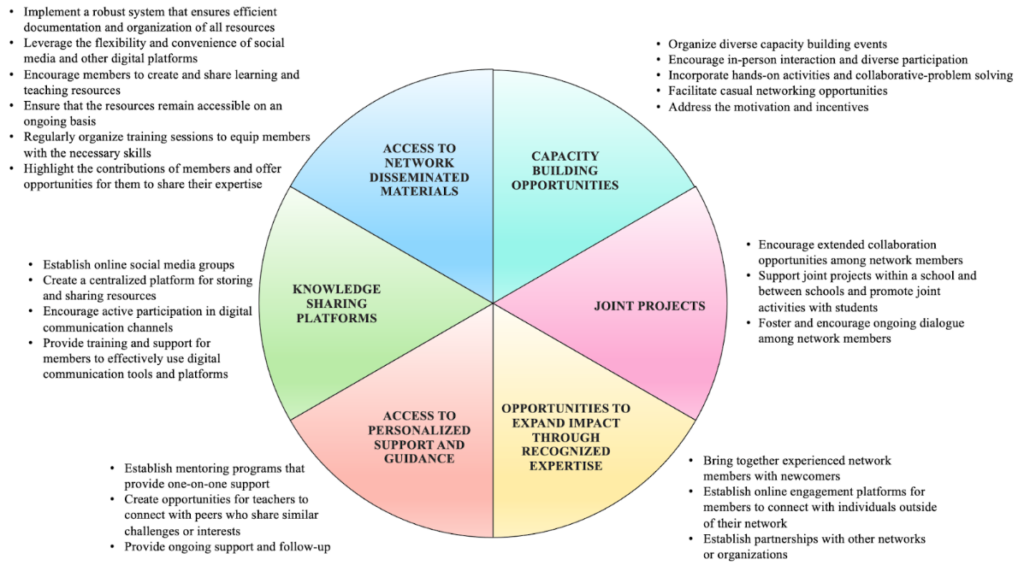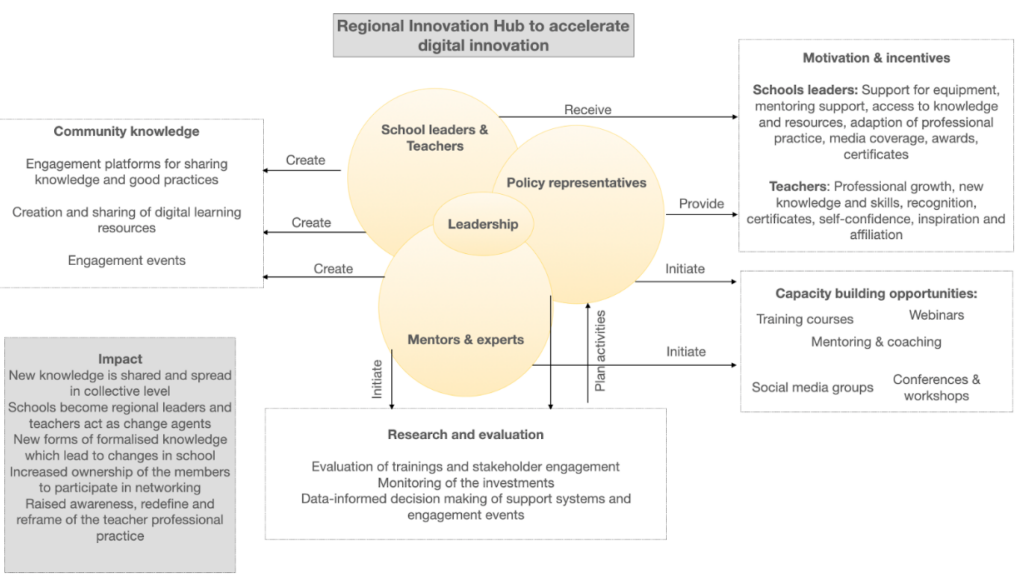In the project, Five Regional Innovation Hubs were established, seen as catalysts for cohesive collaboration among various stakeholders, fostering sustained digital innovation in education at local, regional, and national scales, even across borders. iHub4Schools focuses in particular on encouraging cooperation between teachers and schools to accelerate evidence-informed and whole-school level adoption of digital innovation through peer-learning and mentoring. In our approach, systematic and holistic changes are needed at the organizational level (schools, networks) to engage teachers with different levels of competence and leaders with varying needs and interests.
Design specifications
Through our project, we found that establishing effective Regional Innovation Hubs to accelerate digital innovation in schools requires a tailored approach. These hubs can be thematic, region-specific, or designed to address specific school needs. Initiated by various stakeholders and driven by different policy levels or practical requirements, achieving sustainability for these hubs involves addressing diverse elements and factors. Our project established five hubs across four European countries, engaged over 600 teachers, and led to the development of design specifications to guide future Regional Innovation Hubs.
The success and sustainability of these Regional Innovation Hubs rely on stakeholders’ engagement and support mechanisms. It is crucial for stakeholders to derive value from their involvement in order to maintain their commitment. Without this value, stakeholders may disengage, leading to the disintegration of the network. Value creation within the networks can be achieved through various activities and interactions, which result in short or long-term benefits for participants. These benefits include finding solutions to problems, acquiring useful skills, developing social relations, and accessing privileged resources. In the iHub4School project, these activities and interactions are referred to as hub-embedded support mechanisms. Support mechanisms developed in this project through the collaboration with national stakeholder networks, provide practical recommendations for establishing and nurturing sustainable connections with key stakeholders, such as teachers and school teams, in digital innovation initiatives. Support mechanisms are designed to enhance primary stakeholder engagement and ensure long-term sustainability.

